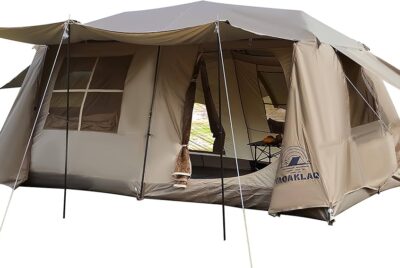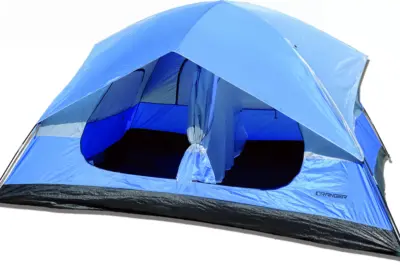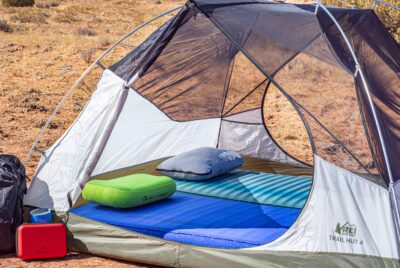Your Guide to Choosing the Perfect Camping Tent Heater
Introduction to Camping Tent Heaters
Picture this: a crisp night sky, the sound of crackling leaves under your feet, and the warmth of a cozy camping tent heater keeping you snug as you explore the wonders of the great outdoors. If you’re new to camping or a seasoned adventurer looking to enhance your experience, a camping tent heater might just be the game-changer you need. In this guide, we’ll dive into the world of camping tent heaters, exploring why they’re essential, how to choose the right one, and tips for maximizing their efficiency.
Why You Need a Camping Tent Heater:
Heading into the wilderness means facing unpredictable weather, and chilly nights can quickly turn a camping trip into a shivering ordeal. A camping tent heater is your ticket to a comfortable and enjoyable outdoor experience. These compact devices are designed to keep your tent warm, providing a cozy retreat after a day of hiking, fishing, or simply soaking in nature.
Types of Camping Tent Heaters:
Electric Tent Heaters:
Electric tent heaters are a camper’s best friend when seeking a convenient and efficient way to stay warm in the great outdoors. These heaters operate silently, creating a peaceful sleeping environment, and many models come equipped with adjustable settings, allowing you to customize the temperature inside your tent. One of the significant advantages of electric tent heaters is their user-friendly nature; simply plug them into a power source, and you’re good to go. Ideal for campsites with electrical hookups, electric tent heaters offer reliable heating without the need for open flames or additional fuel sources, making them a safe and reliable choice for campers of all experience levels.
Propane Tent Heaters:
Propane tent heaters are the go-to choice for campers exploring off-grid locations where access to electricity may be limited. These heaters are known for their quick and effective heat generation, powered by portable propane canisters. Their versatility makes them suitable for various camping scenarios, from chilly mountain retreats to lakeside adventures. It’s important to prioritize safety when using propane tent heaters, ensuring proper ventilation to prevent carbon monoxide buildup. Many models include safety features like tip-over switches and oxygen depletion sensors, enhancing peace of mind during your outdoor excursions. With their reliability and portability, propane tent heaters are a trusted companion for campers seeking warmth in remote and rugged landscapes.
Battery-Powered Tent Heaters:
Battery-powered tent heaters offer a liberating solution for campers who prioritize mobility and flexibility. These compact and portable heaters are powered by rechargeable batteries, making them an excellent choice for off-grid adventures and backpacking trips. While they may not produce the same level of heat as electric or propane alternatives, their convenience lies in their ability to function without access to electrical outlets or fuel canisters. Backpackers and hikers can appreciate the lightweight design and ease of use, ensuring that staying warm during chilly nights doesn’t come at the cost of added weight or complexity. With the advancement in battery technology, these tent heaters are carving a niche for themselves as a practical and energy-efficient option for outdoor enthusiasts on the move.
Choosing the Right Camping Tent Heater:
Size Matters:
The size of a tent heater is a critical factor in ensuring optimal warmth during your camping adventures. Choosing the right-sized heater directly correlates with the dimensions and insulation of your tent. A smaller, well-insulated tent requires a heater with lower BTU (British Thermal Units) output, preventing overheating and conserving energy. On the other hand, larger tents or those with poor insulation demand a more powerful heater to effectively warm the space. Selecting a tent heater with the appropriate size ensures efficient heat distribution, creating a comfortable environment without unnecessary energy consumption or the risk of insufficient warmth. So, when it comes to tent heaters, size indeed matters for a cozy and tailored camping experience.
Portability and Weight:
Portability and weight are crucial considerations when selecting a camping tent heater, especially for outdoor enthusiasts on the move. For backpackers and hikers, where every ounce matters, the weight of your gear can significantly impact your overall experience. A portable and lightweight tent heater ensures that you stay warm without burdening yourself with excessive weight. The ability to easily carry and set up your heater adds convenience to your camping adventure, allowing you to explore diverse landscapes without feeling encumbered. Whether trekking through the wilderness or setting up camp at a scenic spot, a portable and lightweight tent heater becomes an essential piece of gear, contributing to a more enjoyable and hassle-free outdoor experience.
Safety Features:
Safety features are paramount when it comes to camping tent heaters, ensuring a worry-free outdoor experience. Many modern heaters come equipped with advanced safety mechanisms to prevent accidents. Automatic shut-off features are common, shutting down the heater if it overheats or if it’s accidentally tipped over. Propane tent heaters often include oxygen depletion sensors, detecting low oxygen levels and shutting off the heater to prevent the accumulation of harmful gases. These safety measures provide campers with peace of mind, allowing them to enjoy the warmth of their tent heaters without undue concern. When selecting a camping tent heater, prioritizing models with comprehensive safety features ensures a secure and comfortable night under the stars.
Tips for Efficient Tent Heating:
Insulate Your Tent:
Insulating your camping tent is the key to maximizing the efficiency of a tent heater and maintaining a comfortable temperature inside. Quality insulation traps and retains heat, creating a cozy sanctuary even in chilly conditions. The ground mat under the tent is the first line of defense against cold, so using a thick, insulated mat is essential. Additionally, sealing any gaps or openings in the tent with draft stoppers prevents heat from escaping and cold air from seeping in. Proper insulation not only enhances the effectiveness of your tent heater but also reduces energy consumption, ensuring that you stay warm without overtaxing your heating equipment. For a truly snug camping experience, investing in insulation is a wise and rew
Ventilation is Key:
Proper ventilation in camping tents is a critical consideration for camper safety and comfort. Good airflow ensures the exchange of fresh air, preventing the accumulation of condensation and reducing the risk of respiratory issues. When using tent heaters, especially those fueled by propane, adequate ventilation becomes even more crucial. Opening windows or vents helps to dissipate heat, humidity, and any potential carbon monoxide buildup, promoting a healthier indoor environment. Well-designed tents often come with built-in ventilation features, such as mesh windows and adjustable vents, allowing campers to regulate airflow according to weather conditions. Prioritizing proper tent ventilation contributes not only to camper safety but also to a more enjoyable and refreshing outdoor experience.
Layer Up:
Layering clothing is a smart strategy for staying warm when using camping tents, complementing the heat provided by tent heaters. Rather than relying solely on the warmth generated by the heater, dressing in layers helps retain body heat and adapt to fluctuating temperatures. Start with a moisture-wicking base layer to keep sweat away from the skin, add insulating layers like fleece or down for warmth, and finish with a waterproof and windproof outer layer to shield against the elements. This versatile approach allows campers to adjust their clothing as needed, ensuring comfort in a variety of conditions and maximizing the effectiveness of both their clothing and the tent heater.
Conclusion:
In conclusion, as we delve into the enchanting world of camping, a reliable tent heater emerges as a must-have companion for a truly enjoyable outdoor experience. Whether you’re nestled under a canopy of stars in a remote wilderness or camping at a site with electrical hookups, the right tent heater can transform chilly nights into cozy retreats. Electric, propane, or battery-powered, each type has its merits, and the key lies in selecting one that aligns with your specific camping needs. Size considerations, portability, and safety features are vital aspects to ponder, ensuring a harmonious balance between warmth and practicality. So, as you plan your next camping adventure, remember that the warmth of a well-chosen tent heater is the key to unlocking the full magic of the great outdoors.
FAQs:
Can I use a camping tent heater in all types of tents?
It depends on the size and insulation of your tent. Ensure the heater’s BTU rating matches the tent size, and consider insulating your tent for optimal heat retention.
Are battery-powered tent heaters sufficient for cold nights?
Battery-powered heaters are suitable for mild to moderately cold conditions. For extremely low temperatures, consider electric or propane heaters for more robust heating.
How long do propane canisters last in a tent heater?
The duration depends on the heater’s BTU rating and the size of the propane canister. Check the product specifications for estimated runtime and bring extra canisters for longer trips.
Are tent heaters safe to use inside tents?
Yes, if used responsibly. Ensure proper ventilation, follow safety guidelines, and choose a heater with safety features like automatic shut-off to minimize risks.
Can I leave a tent heater on overnight?
It’s generally not recommended to leave any heating device unattended. If you plan to sleep with the heater on, choose a model with safety features and follow the manufacturer’s guidelines for overnight use.




